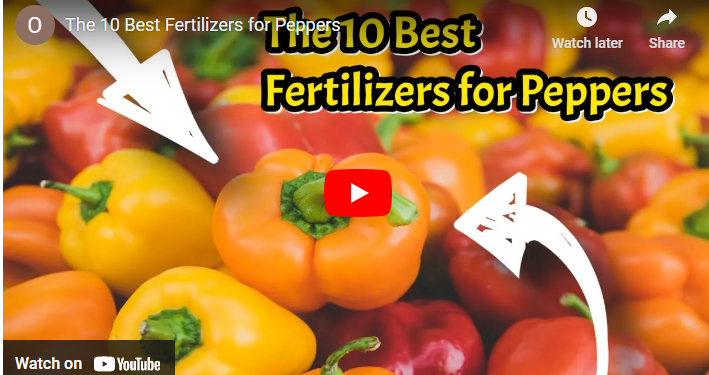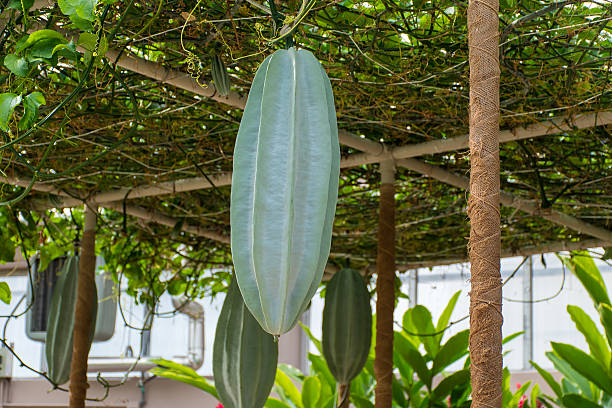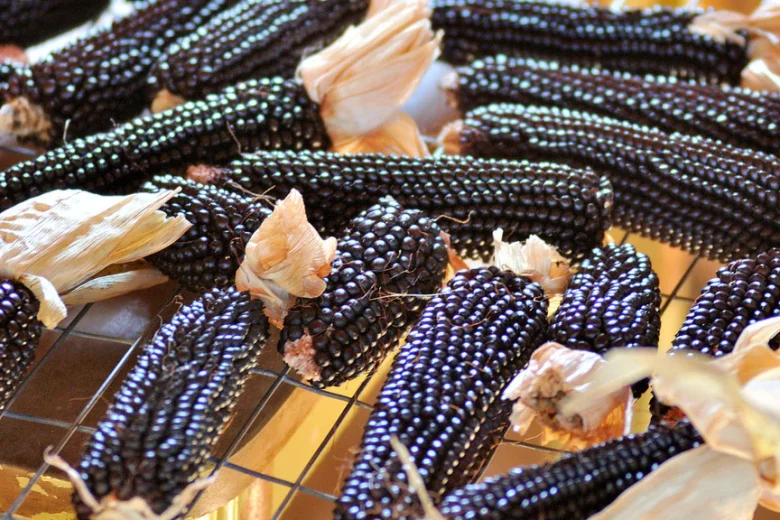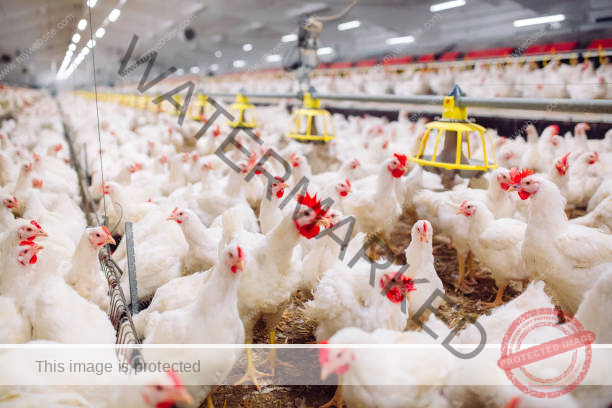Peppers are a versatile and popular vegetable in many cuisines around the world. Whether you prefer the mild sweetness of bell peppers or the fiery heat of chili peppers, growing them in your garden can be a rewarding experience.
The best fertilizer for pepper is Ammonium Nitrate, Epsom Salt, Potassium Sulfate, Calcium Nitrate, NPK Fertilizer, Bone Meal, Seaweed Extract and Fish Emulsion
To ensure healthy growth and bountiful harvests, it’s crucial to provide your pepper plants with the right nutrients. In this article, we will explore the 15 best fertilizers for pepper, both organic and inorganic, to help you make an informed decision for your garden.
15 Best Fertilizers for Pepper: Organic & Inorganic
Here is a comprehensive list of the top 15 fertilizers for pepper plants, categorized into organic and inorganic options:
Read Also: 15 Best Fertilizers for Cassava Farm [Organic & Inorganic]
Organic Fertilizers
1. Compost:
Rich in organic matter and essential nutrients, compost is an excellent all-around fertilizer for peppers. It improves soil structure and enhances nutrient retention, promoting healthy growth.
Read Also: 15 Best Fertilizer for Rice Farm [Organic & Inorganic Fertilizers]
2. Fish Emulsion:
Derived from fish waste, this organic fertilizer provides a balanced mix of nutrients, including nitrogen, phosphorus, and potassium. It is readily absorbed by plants and helps stimulate growth.
3. Seaweed Extract:
Packed with trace minerals and growth-promoting compounds, seaweed extract boosts pepper plants’ overall health and resilience. It also enhances root development and nutrient uptake.
Read Also: 15 Best Fertilizers for Groundnut [Organic & Inorganic]
4. Bone Meal:
A slow-release fertilizer, bone meal is high in phosphorus, which supports flower and fruit formation. It is particularly beneficial during the pepper plant’s flowering and fruiting stages.
5. Blood Meal:
Another organic fertilizer rich in nitrogen, blood meal promotes vigorous vegetative growth in pepper plants. It is especially useful during the early stages of plant development.
Read Also: 21 Best Fertilizer for Soybeans Organic & Inorganic: Maximizing Yield and Quality
Inorganic Fertilizers
6. NPK Fertilizer:
A balanced blend of nitrogen (N), phosphorus (P), and potassium (K), NPK fertilizers provide essential macronutrients for pepper plants. Choose a formulation with equal or slightly higher phosphorus content for better fruit production.
Read Also: 15 Best Fertilizers for Beans [Organic & Inorganic]
7. Calcium Nitrate:
This inorganic fertilizer is an excellent source of calcium, which helps prevent blossom end rot, a common problem in pepper plants. It also supplies nitrogen for healthy foliage growth.
Read Also: 15 Best Fertilizers for Apple and Pear Trees: Organic & Inorganic
8. Potassium Sulfate:
With a high potassium content, potassium sulfate promotes overall plant health, improves fruit quality, and enhances the plant’s resistance to diseases and pests.
Read Also: The Ultimate Guide to Maize Fertilizer Schedule: Boost Your Crop’s Growth
9. Epsom Salt:
Not actually salt, Epsom salt is a magnesium sulfate compound that helps increase chlorophyll production and improve nutrient absorption. It is particularly beneficial for pepper plants grown in magnesium-deficient soils.
Read Also: 15 Best Fertilizers for Watermelon: Organic & Inorganic
10. Ammonium Nitrate:
An easily soluble nitrogen fertilizer, ammonium nitrate provides a quick boost of nutrients to pepper plants. Use it sparingly and avoid excessive application to prevent burning the plants.
How often should I fertilize my pepper plants?
Pepper plants generally benefit from regular fertilization every 4-6 weeks throughout the growing season. However, it’s important to monitor your plants’ response to fertilizers and adjust the frequency accordingly.
Read Also: 12 Liquid Fertilizers for Maize: Boost Your Crop’s Growth!
Can I use the same fertilizer for both bell peppers and chili peppers?
Yes, most fertilizers are suitable for both bell peppers and chili peppers since they have similar nutrient requirements. However, it’s crucial to follow the recommended application rates and adjust them based on the specific needs of your plants.
Read Also: 15 Best Fertilizers for Tobacco [Organic & Inorganic]
Is organic fertilizer better than inorganic fertilizer for peppers?
Both organic and inorganic fertilizers have their advantages. Organic fertilizers improve soil health and long-term sustainability, while inorganic fertilizers provide precise and readily available nutrients. The choice between the two depends on your gardening preferences and goals.
Read Also: 15 Best Fertilizer for Palm Oil Trees Organic & Inorganic: Boosting Growth and Yield
Can I make my own organic fertilizer for peppers?
Absolutely! Homemade organic fertilizers, such as compost tea or banana peel fertilizer, can be effective options. Just ensure proper composting and dilution ratios to avoid nutrient imbalances or plant damage.
How much fertilizer should I apply to pepper plants?
It’s crucial to follow the manufacturer’s instructions and recommendations for the specific fertilizer you’re using. Over-fertilization can lead to nutrient burn and harm the plants, so it’s better to err on the side of caution and apply fertilizers sparingly.
Should I use slow-release or quick-release fertilizers for peppers?
Both types of fertilizers can be suitable for peppers, depending on your specific requirements. Slow-release fertilizers provide a steady supply of nutrients over an extended period, while quick-release fertilizers offer an immediate nutrient boost. Consider the growth stage of your pepper plants and choose accordingly.
Conclusion
Choosing the right fertilizer is crucial for the successful growth and abundant harvest of your pepper plants. Whether you opt for organic or inorganic options, the 15 best fertilizers for pepper, as discussed in this article, will provide the necessary nutrients to support their health and productivity.
Follow the application instructions, monitor your plants’ response, and make adjustments as needed. With proper fertilization, you’ll enjoy vibrant, thriving pepper plants that yield delicious peppers to spice up your culinary creations.





